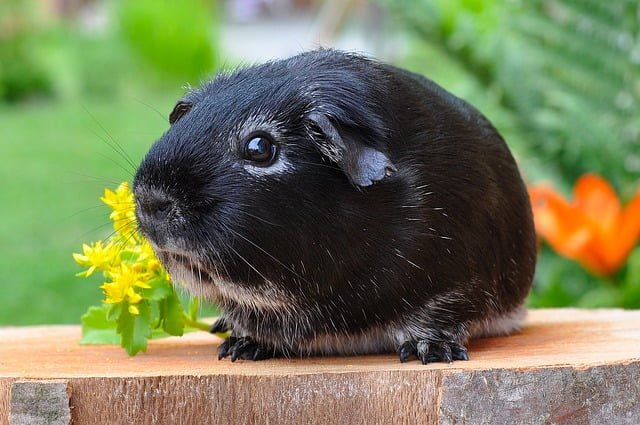When you’re a kid, one of the best things is getting your first pet. It’s a new friend to love and care for, and it can be a great learning experience, too. But what animal should you choose for your first pet? There are so many options out there, so read on in order to make the best possible decision.
Table of Contents
Think About Maintenance
This has to be the first thing you need to consider as it greatly affects your experience. New cavy owners always research Guinea Pigs and their behavior before settling for them in order to figure out if they’re ready for the job. Once you get the pet, it’s your responsibility.

Cleaning up after pets is a key component of pet ownership. Therefore, considering maintenance should be a priority when choosing an animal for your first-time pet. Every type of animal, from dogs and cats to small animals like hamsters and gerbils, comes with its own set of needs in terms of daily care, cleaning, and overall upkeep. It’s important to think about how much time, energy, and money you can commit to caring for the pet before making any final decisions.
What’s Their Temperament?
You don’t want an aggressive pet, so temperament is an important factor when considering which animal to adopt. While temperament can be affected by the environment, some animals, like Zebra isopods have certain temperament traits that are hard-wired into their species’ personalities and may not be alterable.
For example, cats are usually independent creatures who are content to just relax at home and observe the world from a safe distance. They’re more likely to let you come to them than force themselves on you for affection. On the other hand, dogs are pack animals, so they need companionship and consistency in order to thrive and look forward to interacting with humans.
How Much Space Do They Need?
You always need to ask yourself if you can provide enough space for your pet. Some animals require space to roam, climb, hide and explore, while others may do just fine in a smaller space. Of course, some pets can adapt to both small and large spaces very easily.
When considering space as a factor for choosing a first-time pet, it’s important to really assess what type of space you have available. If you live in an apartment or condo, you might need to consider animals that require little space like fish or hamsters. But if you own a home with a yard or other outdoor area where the animal could move around freely and safely, then larger breeds of cats and dogs might be better suited for your lifestyle.
For example, dogs need more space to exercise, play and roam than cats. Some breeds are known to require lots of space and exercise, like Golden Retrievers or German Shepards, while smaller breeds like Chihuahuas and Dachshunds can be just as happy in a small space.
Think About Their Lifespan
While some pets live for over a decade, others may only have a lifespan of two years. As a first-time pet owner, it’s important to consider the lifespan of your potential pet so that you can plan for the long-term care and attention they need. Smaller animals like hamsters, mice, and gerbils generally have shorter lifespans than larger pets like cats and dogs, so if you’re looking for a longer-term pet, it might be better to opt for one of these larger options.
How Much Time Do You Have?
You need to make time for tons of things regarding your pet. These are the following:
- Feeding
- Cleaning
- Playtime
- Walks
- Visits to the vet
- Grooming
- Training (if needed)
You also need time to train your pet and time for general maintenance, such as trimming nails. If you don’t think you have time for all this, then it may not be the best time to adopt a pet. Some pets require more time than others.
Keeping Them Healthy
You’re responsible for the health and well-being of your pet. Taking into account a few things can help you choose an animal that is best suited to your lifestyle and housing situation, keeping them healthy and happy for years to come.
If you’re looking for a low-maintenance pet, consider animals like guinea pigs or rabbits which do not require much in terms of exercise compared to more active pets such as dogs or cats.
Some animals require more specialized care, like ferrets, hedgehogs, and reptiles. Before you commit to any pet, it is important to research the specific needs of their species so that you can ensure their health for years to come.
Indoor Vs Outdoor
It’s also essential to think about where you’ll keep your pet. There are pros and cons to both indoor and outdoor options.
For indoor pets, the main advantage is that your pet will be living in a comfortable environment where they can remain safe from predators and weather. They will also get plenty of attention since they’ll be around you most of the time. The downside is that indoor animal care requires more effort and money since you’ll need to invest in cages, bedding, toys, food, and other materials.
On the other hand, outdoor pets can benefit from having more space to roam around and explore their environment. They may also not require as much maintenance or attention as indoor pets do. However, they may be exposed to predators and the elements, so extra care should be taken to ensure their safety.
Consider Your Neighbors
It’s also important to think about your neighbors when selecting the perfect pet. If you live in an apartment building, the quality of life of the people around you should be taken into account.
For example, if the neighbors have allergies or sensitivities to animals it’s best to avoid bringing home a certain breed that will trigger their allergies. Additionally, some breeds are more vocal than others and can easily disturb the peace of the people around you.
Other animals such as reptiles, birds, rodents, and fish are generally quieter and require less space than the more traditional pet choices like cats or dogs. When considering the neighbors it’s always best to do some research ahead of time so that everyone can have a peaceful living environment.

Pets are a great thing to have, but you do need to think about how to maintain them and how they behave. Consider the space they need and how long they live before settling as well as the time you need to take from each day to care for them. Some are easier to keep healthy than others and consider where you’ll keep them. Finally, think about your neighbors as well!




